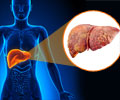Efficacy of treatment options for anti-NMDA receptor encephalitis for male patients without tumor compared and possible treatment response biomarker has been identified. These treatments include steroids, intravenous immunoglobulin, plasma exchange, plasmapheresis, rituximab, and cyclophosphamide.

‘This study compares the efficacy of treatments for male anti-NMDA receptor encephalitis patients without tumor and finds that the efficacy rate of plasmapheresis (or plasma exchange) is not inferior to those of other treatment options such as intravenous immunoglobulin and rituximab. The study also identifies treatment response biomarkers.’





The treatments for this disorder include first-line immunotherapies: steroids,
intravenous immunoglobulin (IVIG) or plasmapheresis (or plasma exchange); and second-line immunotherapy such as rituximab or cyclophosphamide. In addition, it is suggested that tumors be resected from these patients. The choice of treatments may be a potential factor that facilitates an early recovery from anti-NMDA receptor encephalitis. Studies on the efficacies of treatments for anti-NMDA receptor encephalitis have revealed that patients receiving at least two different forms of therapy may have higher efficacy rates than patients receiving a single form of therapy. The results of this comparison reveal that it is possible to find the effective treatment strategy for a specific group of patients although this treatment strategy may not always be effective for the patients that are not in this specific group. Most studies for the anti-NMDA receptor encephalitis provided an overview statistical result for this disease but did not focus on any patient-specific treatment discussion.
This study can provide a patient-specific treatment strategy since the efficacy rate of plasmapheresis (or plasma exchange) is not inferior to those of intravenous immunoglobulin and rituximab (or cyclophosphamide) for male patients without tumor.
Source-Eurekalert













